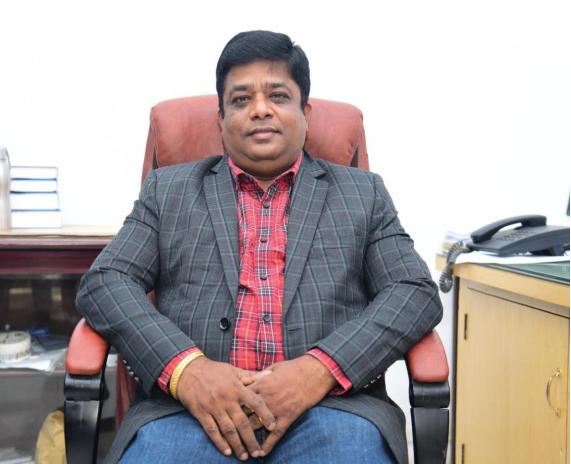
IIT Madras professor working on next gen sensor that can improve medical imaging technology
- 21st Dec 2022
-
The Hindu
Prafulla Kumar Behera says the sensor can be used for particle detector and developing medical imaging; it will be sent to Israel for fabrication and later to CERN
For nearly a decade researchers at the Indian Institute of Technology Madras have been working on a project that has put them among a set of elite institutions in the world.
Prafulla Kumar Behera, a professor in Physics department, is working on developing the next generation sensor which would improve the current medical imaging technology, making for sharper images. "It is still in the R&D stage," he says.
As an associate member of CERN, he was recognised for his work and was invited to return to the country and was involved in the Indian Nuetrino Observatory, which was to be set up in Theni but has since been shelved.
India became an associate member in CERN in 2016 but since then the country has accrued a few benefits. For India to benefit from research at CERN, he says the industry must get involved. Indian industries could bid for works in CERN and bring back the membership fee. Indian industries could leverage the technology they were strong in and bid for work tenders, he says.
A recent review of India's investment in the membership recently led to the government conducting series of meetings with industries to raise awareness about the opportunities. Several rounds of meetings with industry have been held already.
Meanwhile, Mr. Behera's current MoU with the IIT Madras is to design next generation sensor that would be sent to Israel for fabrication and later to CERN. This research would benefit the wider medical technology, he says and added: "The next generation sensor can be used for particle detector and developing medical imaging."
He is among the top 2% scientists in Natural Science and Experimental High Energy Physics as per AD Scientific Index, 2023. For research to benefit the country, it must be incentivised, he points out. Quality research happens in technical institutes but it does not reach the industry for want of industry - academia interaction.
Some countries have made the return of their scientists back home lucrative by giving them pay parity with their position in foreign universities. Some countries offer a 5% cut in the project money the researcher brings to the university, he points out.

